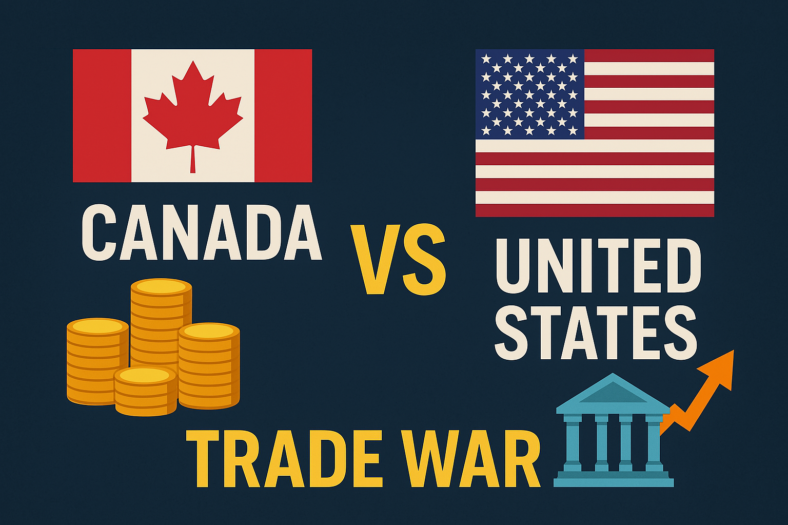Welcome to our comprehensive guide on finding the best private mortgage lender rates in British Columbia, Canada! Whether you’re a prospective homebuyer, a seasoned real estate investor, or someone seeking alternative financing options, navigating the mortgage market in BC can be a complex and challenging task. With a multitude of private lenders offering varying rates and terms, it’s crucial to have a clear understanding of your options to make informed decisions.
In this guide, we’ll take you through everything you need to know about private mortgage lending in British Columbia, from understanding the basics of private mortgages to how to secure the most competitive rates for your unique financial situation. We’ll explore the benefits and considerations of working with private lenders, delve into the factors that influence mortgage rates, and provide practical tips for finding the best rates available.
Whether you’re looking to purchase a primary residence, finance an investment property, or secure short-term bridge financing, this guide aims to equip you with the knowledge and tools necessary to navigate the BC private mortgage market with confidence. By the end of this guide, you’ll have a solid understanding of how private mortgage lending works in BC and be well-prepared to secure competitive rates for your mortgage needs.
So, let’s embark on a journey through the world of private mortgage lender rates in British Columbia and empower you to make informed decisions about your real estate financing options.
Here Are the Best Private Mortgage Lender Rates in BC, Canada
What is a private lender and how do they work?
A private lender is an individual or an entity that provides financing for real estate transactions outside of traditional banking institutions. Unlike banks or credit unions, private lenders operate independently and are not regulated by government agencies like the Office of the Superintendent of Financial Institutions (OSFI) in Canada. Here’s how private lenders typically work:
Flexible Lending Criteria: Private lenders often have more flexible lending criteria compared to traditional banks. While banks may prioritize factors such as credit score and income stability, private lenders are typically more concerned with the value of the property being used as collateral for the loan. This flexibility allows private lenders to cater to borrowers who may not qualify for conventional mortgages due to credit issues, income variability, or unconventional properties.
Collateral-Based Lending: Private lenders primarily engage in collateral-based lending. This means that the property being financed serves as security for the loan. Private lenders assess the value of the property and the borrower’s equity to determine the amount of financing they are willing to provide. Because the loan is secured by collateral, private lenders may be more willing to extend financing to borrowers who may not qualify for traditional mortgages.
Shorter Loan Terms: Private mortgages typically have shorter loan terms compared to traditional mortgages. While traditional mortgages may have terms of 25 to 30 years, private mortgages often range from six months to a few years. Borrowers often use private financing for short-term solutions, such as bridge financing, construction loans, or when traditional financing is unavailable.
Higher Interest Rates: Private mortgages usually come with higher interest rates compared to traditional mortgages. Private lenders take on higher risks by lending to borrowers who may not qualify for bank financing, and they offset these risks by charging higher interest rates. However, despite the higher rates, private mortgages can still be valuable options for borrowers who need quick access to funding or have unique financing needs.
Flexibility in Loan Structure: Private lenders can offer more flexibility in the structure of the loan. They may tailor loan packages to meet the specific needs of borrowers, such as interest-only payments, customized amortization schedules, or the ability to finance unconventional properties.
Overall, private lenders play a vital role in the real estate market by providing alternative financing solutions to borrowers who may not qualify for traditional bank loans. While private mortgages come with certain trade-offs, they offer flexibility and accessibility for individuals and investors seeking financing for real estate transactions.
What types of loans do private lenders offer in BC, Canada?
Private lenders in British Columbia, Canada, offer a variety of loan products to meet the diverse financing needs of borrowers. Some common types of loans offered by private lenders in BC include:
First Mortgages: Private lenders can provide first mortgages to borrowers who are purchasing a property or refinancing an existing mortgage. These loans are secured by the property being financed and typically have shorter terms and higher interest rates compared to traditional bank mortgages.
Second Mortgages: Private lenders may also offer second mortgages, which are subordinate to the first mortgage on a property. Second mortgages can be used for various purposes, such as debt consolidation, home renovations, or accessing equity for investment purposes. These loans usually have higher interest rates than first mortgages due to the increased risk for the lender.
Bridge Financing: Bridge financing, also known as interim financing or gap financing, is a short-term loan provided by private lenders to bridge the gap between the purchase of a new property and the sale of an existing property. Bridge loans are typically used by homeowners who need immediate funds to complete a real estate transaction before their existing property is sold.
Construction Loans: Private lenders may offer construction loans to finance the construction or renovation of residential or commercial properties. These loans provide funding at various stages of the construction process and are usually interest-only during the construction phase, with the principal repaid upon completion of the project.
Home Equity Loans: Home equity loans allow homeowners to borrow against the equity in their property. Private lenders may offer home equity loans to borrowers who need funds for purposes such as home improvements, debt consolidation, or investment opportunities. These loans are secured by the borrower’s equity in the property.
Debt Consolidation Loans: Private lenders may offer debt consolidation loans to borrowers who have multiple debts and want to consolidate them into a single loan with a lower interest rate. These loans can help borrowers manage their debt more effectively and reduce their monthly payments.
Commercial Mortgages: Private lenders may provide financing for commercial properties, such as office buildings, retail centers, or industrial properties. Commercial mortgages typically have different underwriting criteria and terms compared to residential mortgages, and private lenders can offer customized solutions to meet the needs of commercial borrowers.
These are just a few examples of the types of loans offered by private lenders in British Columbia, Canada. Private lenders can provide flexible financing solutions for a wide range of real estate transactions and borrower needs, making them a valuable alternative to traditional bank financing.
How to find the best private mortgage lender rates in BC, Canada
Finding the best private mortgage lender rates in British Columbia, Canada, requires thorough research, comparison, and consideration of various factors. Here’s a step-by-step guide to help you find the most competitive rates:
Understand Your Needs: Before you start your search for a private mortgage lender, determine your specific financing needs and goals. Consider factors such as the type of property you’re financing, your credit history, desired loan term, and your ability to repay the loan.
Research Lenders: Begin by researching private mortgage lenders operating in British Columbia. Look for lenders who specialize in your type of property or financing needs. You can find lenders through online searches, referrals from real estate professionals, mortgage brokers, or networking within the local real estate community.
Check Credentials and Reputation: Verify the credentials and reputation of potential lenders. Look for licensed lenders who comply with British Columbia’s mortgage regulations. Check online reviews, testimonials, and ratings from previous clients to gauge the lender’s reputation for reliability, transparency, and customer service.
Compare Rates and Terms: Once you’ve identified several potential lenders, request quotes or pre-approval offers from each. Compare the interest rates, loan terms, fees, and other terms offered by different lenders. Pay attention to factors such as the loan-to-value ratio, prepayment penalties, and flexibility in repayment options.
Consider the Total Cost of Borrowing: While low interest rates are important, consider the total cost of borrowing over the life of the loan. Factor in any upfront fees, closing costs, and ongoing expenses associated with the mortgage. Choose a lender that offers competitive rates and reasonable fees to minimize the overall cost of financing.
Evaluate Customer Service and Support: Assess the level of customer service and support provided by each lender. Choose a lender who is responsive, communicative, and willing to address your questions and concerns throughout the borrowing process. A lender who offers personalized guidance and support can make the borrowing experience smoother and less stressful.
Review Loan Documents Carefully: Before finalizing your decision, carefully review the loan documents provided by the lender. Pay close attention to the terms and conditions outlined in the mortgage agreement, including interest rate adjustments, repayment obligations, and any contingencies or conditions.
Seek Professional Advice if Needed: If you’re unsure about which lender or mortgage product is best for your situation, consider seeking advice from a qualified mortgage broker, financial advisor, or real estate lawyer. These professionals can offer unbiased guidance and help you navigate the complexities of private mortgage lending.
By following these steps and conducting thorough due diligence, you can find the best private mortgage lender rates in British Columbia that align with your financial needs and objectives. With careful research and comparison, you can secure competitive rates and terms for your mortgage financing needs.
What are common fees that private lenders charge in BC, Canada
Private lenders in British Columbia, Canada, often charge various fees in addition to interest rates to cover the costs associated with processing and administering loans. These fees can vary depending on the lender, the type of loan, and the specific terms of the agreement. Some common fees that private lenders may charge in BC include:
Origination Fees: Origination fees, also known as processing fees or administration fees, are charged by private lenders to cover the cost of processing the loan application and setting up the mortgage. These fees are typically calculated as a percentage of the loan amount and can range from 1% to 5% or more.
Broker Fees: If you use a mortgage broker to connect you with a private lender, the broker may charge a fee for their services. Broker fees can vary depending on the broker and the complexity of the transaction but are typically based on a percentage of the loan amount or a flat fee.
Appraisal Fees: Private lenders may require an independent appraisal of the property to assess its value before approving the loan. Borrowers are typically responsible for covering the cost of the appraisal, which can range from a few hundred to a few thousand dollars depending on the size and complexity of the property.
Legal Fees: Borrowers are usually responsible for covering the legal fees associated with closing the loan, including fees for drafting and registering the mortgage documents. Legal fees can vary depending on the complexity of the transaction and the legal services required.
Commitment Fees: Some private lenders may charge a commitment fee to secure the terms of the loan. This fee is typically paid upfront and is non-refundable, regardless of whether the borrower ultimately accepts the loan offer.
Renewal Fees: If you choose to renew or extend the term of your private mortgage loan, the lender may charge a renewal fee. This fee is typically payable at the time of renewal and may be based on a percentage of the loan amount or a flat fee.
Exit Fees: Private lenders may charge exit fees if you repay the loan before the end of the term. These fees are designed to compensate the lender for the lost interest income and can vary depending on the terms of the loan agreement.
It’s essential to carefully review the terms and conditions of any loan agreement and understand all the fees associated with the loan before proceeding. Borrowers should also be aware that private lenders may have additional fees not listed here, so it’s essential to clarify all costs upfront to avoid surprises later on.
FAQs about the best private mortgage lender rates in BC, Canada
A private mortgage lender is an individual or institution that provides financing for real estate transactions outside of traditional banking channels. Private lenders offer alternative financing options to borrowers who may not qualify for conventional mortgages.
Private mortgage lender rates tend to be higher than rates offered by traditional banks. This is because private lenders often take on higher risks by lending to borrowers who may not meet the strict criteria of conventional lenders.
Several factors can influence private mortgage lender rates in British Columbia, including the borrower’s creditworthiness, the loan-to-value ratio, the type of property being financed, the loan term, and current market conditions.
To find the best private mortgage lender rates, research and compare rates from multiple lenders. Consider factors such as interest rates, loan terms, fees, and the lender’s reputation and customer service.
Private mortgage lenders in British Columbia offer certain advantages, such as greater flexibility in lending criteria, faster approval processes, and the ability to finance properties that may not qualify for traditional bank loans.
Drawbacks of using a private mortgage lender in British Columbia may include higher interest rates, fees, and less regulatory oversight compared to traditional banks. Borrowers should carefully consider the cost and terms of financing before choosing a private lender.
Yes, it is often possible to negotiate with private mortgage lenders on rates and terms, especially if you have strong credit or valuable collateral. However, the extent to which you can negotiate will depend on the lender’s policies and your individual financial situation.
Qualification requirements for private mortgage loans in British Columbia vary depending on the lender and the specific loan product. Generally, private lenders will consider factors such as your credit history, income, debt-to-income ratio, and the value of the property being financed.
In conclusion, navigating the world of private mortgage lender rates in British Columbia, Canada, requires careful consideration and thorough research. Throughout this guide, we’ve explored the fundamentals of private mortgage lending, from understanding what private lenders are to how to find the best rates available in BC.
By understanding the factors that influence private mortgage rates, comparing offers from multiple lenders, and evaluating the terms and conditions of each loan, borrowers can make informed decisions that align with their financial goals. While private mortgage lending offers flexibility and accessibility, it’s essential to weigh the advantages and drawbacks carefully and ensure that the terms of the loan are reasonable and sustainable.
Whether you’re purchasing a home, financing an investment property, or seeking short-term bridge financing, the British Columbia private mortgage market offers a range of options to suit diverse needs. By following the guidance provided in this guide and seeking advice from qualified professionals when needed, borrowers can navigate the process with confidence and secure the best possible rates for their mortgage needs.
Thank you for exploring the world of private mortgage lending in BC, Canada, with us. We hope this guide has empowered you with the knowledge and tools necessary to make informed decisions about your real estate financing options. Remember, with careful research and consideration, you can find competitive rates and terms that meet your unique financial needs and objectives.
Here’s to your success in securing the best private mortgage lender rates in British Columbia and achieving your real estate financing goals!




















